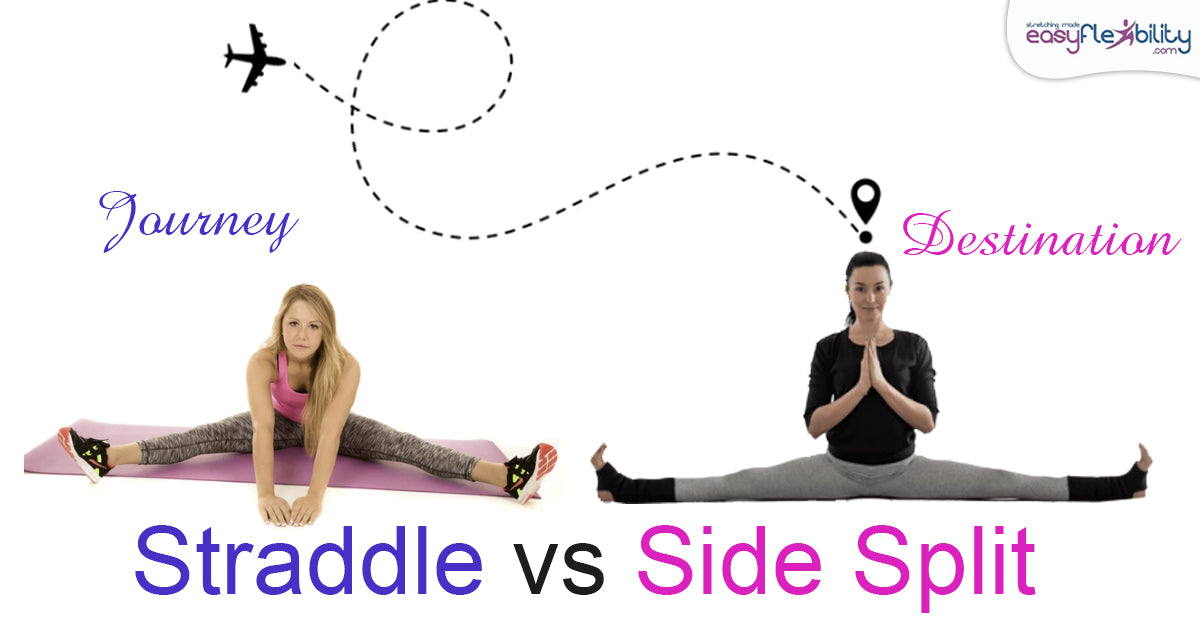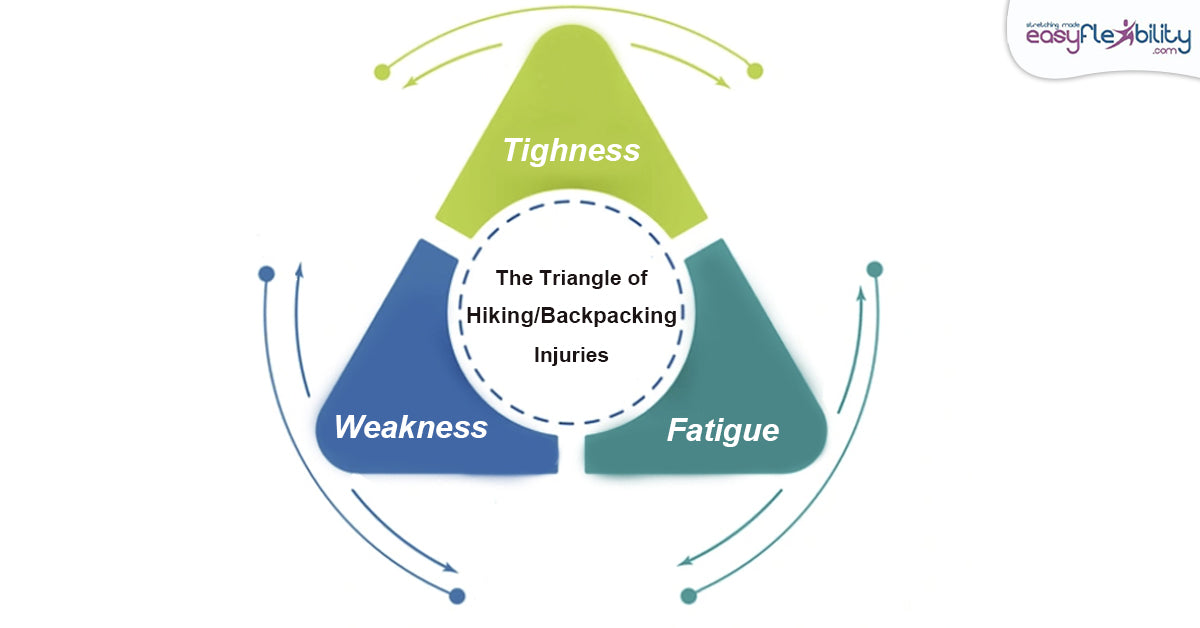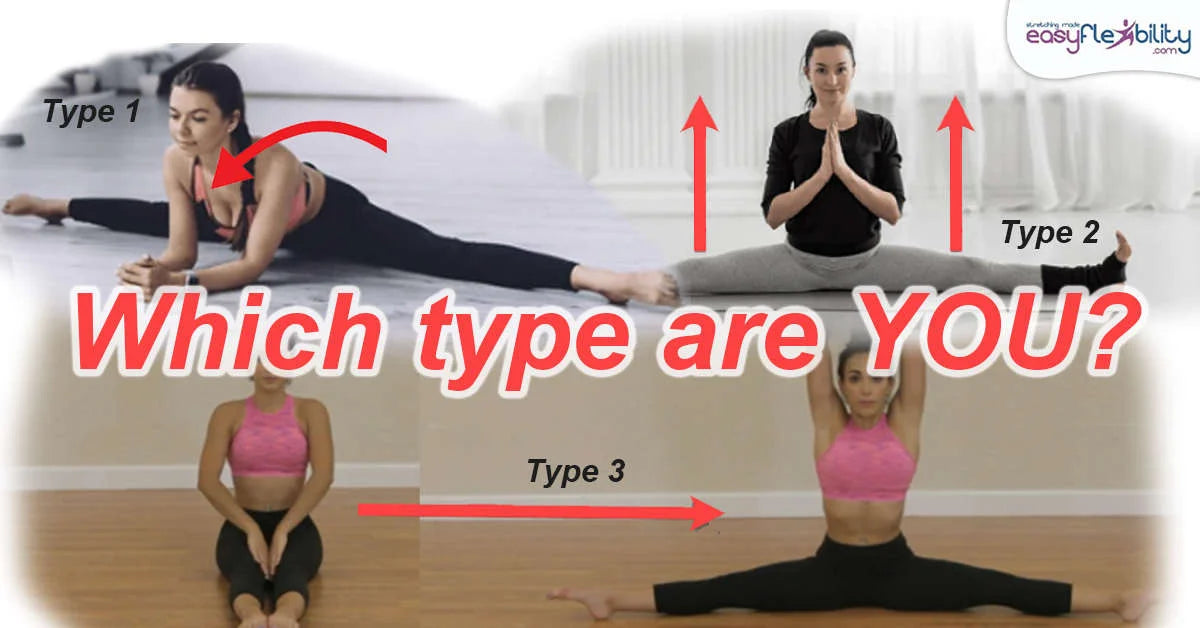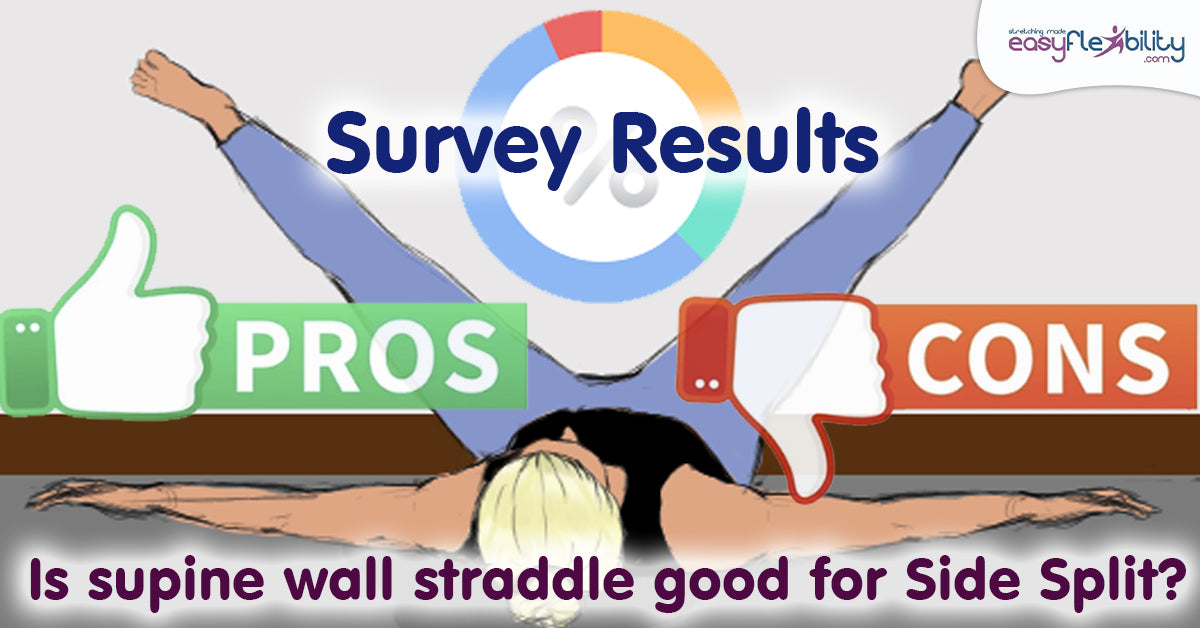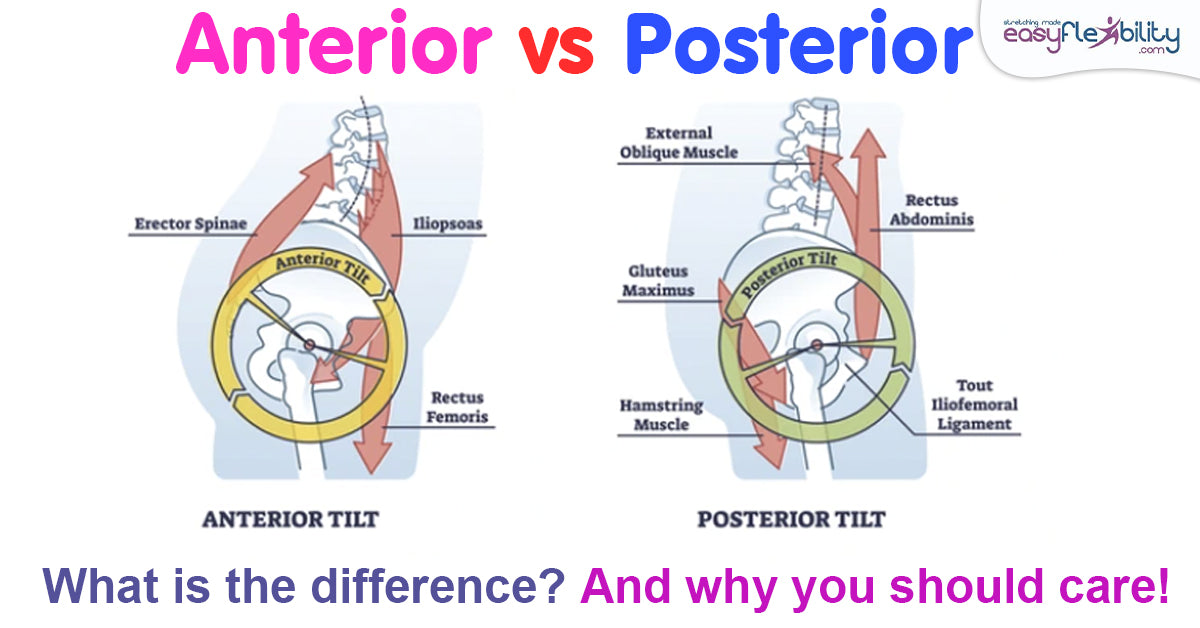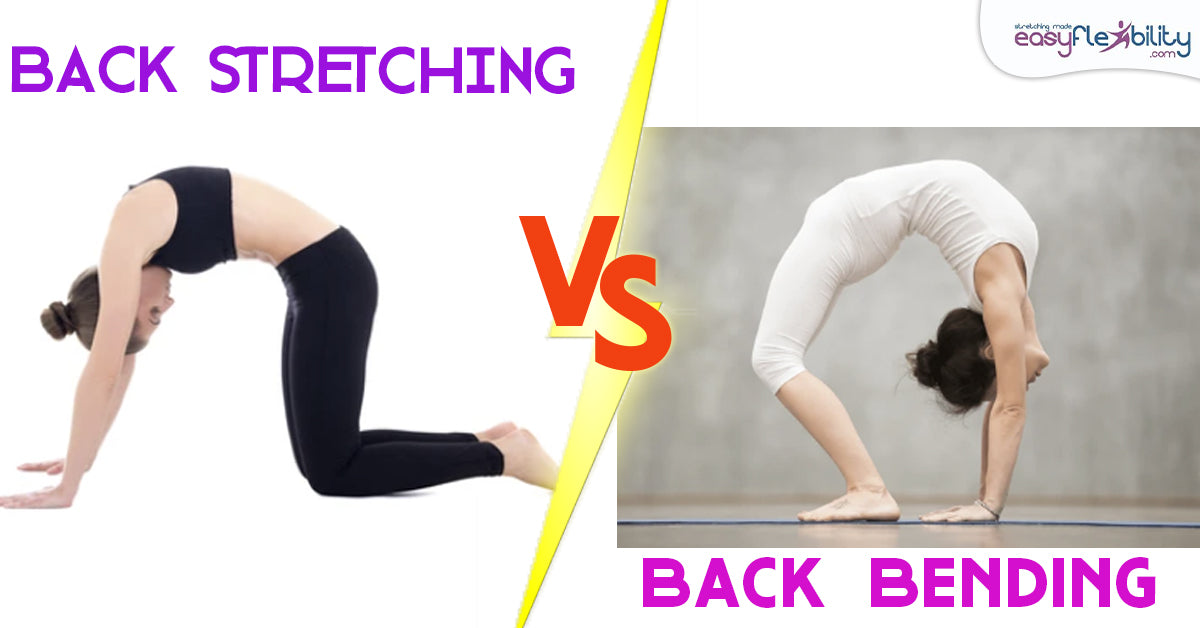Stretching before sleep. Yes, or no?
Posted by Paul Zaichik on
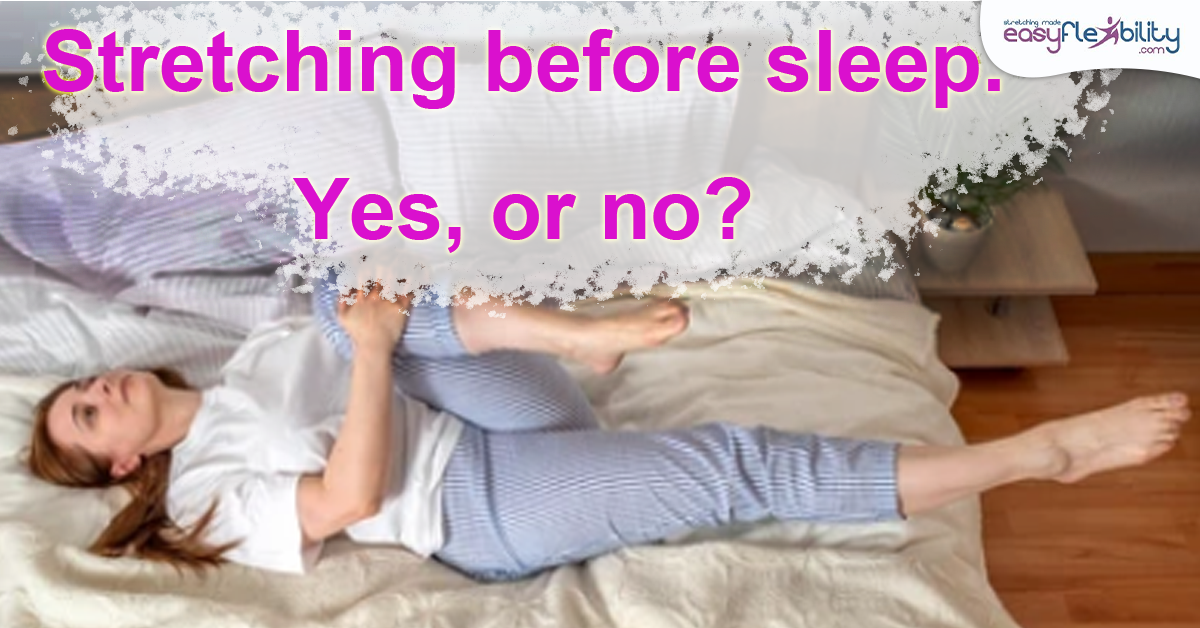
Stretching before sleep. Yes, or no?
It is important to understand what this question is asking. This is not a question about whether stretching before sleep is beneficial to your flexibility. This is a question about if stretching is beneficial to your sleep. Or rather if you stretch before you sleep, is it going to help you sleep better? Make no difference? Or actually decrease the quality of your sleep?
Over the years I heard this question being asked by students and instructors at the time when I was a student and at the time when I was a teacher.
An automatic answer that most people want to say is yes, of course, stretch before you sleep. Stretching is relaxing. Stretching is going to let you sleep better. Why even ask that question?
But there are people who say that any type of physical activity should not be done before sleep, including stretching as there is potential to stimulate the body and actually decrease the depth and quality of sleep. And this brings us to another related question.
Over the years I heard this question being asked by students and instructors at the time when I was a student and at the time when I was a teacher.
An automatic answer that most people want to say is yes, of course, stretch before you sleep. Stretching is relaxing. Stretching is going to let you sleep better. Why even ask that question?
But there are people who say that any type of physical activity should not be done before sleep, including stretching as there is potential to stimulate the body and actually decrease the depth and quality of sleep. And this brings us to another related question.
Is it good to do any type of physical or for that matter, mental exercises before sleep?
Is it good to do any type of physical or for that matter, mental exercises before sleep? Based on my research and experience, I believe two factors are involved. Depending on who you are and what state you're in either of these factors can have an important effect on whether or not you're going to get high quality or poor quality sleep.
- Factor 1: What is the intensity of your mental or physical activity, regardless if it's walking or stretching or anything else.
- Factor 2: What is your Constitution? How are you feeling at the moment about YOU specifically?
Because everybody is different. There are so many people that I know who like to go to bed half an hour or an hour before the scheduled sleeping time and read a book in bed and this helps them sleep.
But then there are people who do not want to use their eyes or their ears or any kind of sensory apparatus before sleep. They don't want to think about anything. They just want to sit in a dark for some time to relax. If they use their eyes to read, this is going to affect their sleep poorly.
There are people who like to go for a walk before they go to sleep. And there are people who know that if they go for a walk right before sleep, they're not going to fall asleep for a long time. So, if they choose to go for a walk, they do it a few hours before they sleep. Not right before.
I remember someone who used to exercise late at night. Weightlifting, calisthenics. Hitting the bag. Take a shower and go to sleep. As time passed by, he told me that he couldn't do that anymore. If he did that, he would not sleep for a long time and then have very poor sleep and then be completely exhausted the next day.
But then there are people who do not want to use their eyes or their ears or any kind of sensory apparatus before sleep. They don't want to think about anything. They just want to sit in a dark for some time to relax. If they use their eyes to read, this is going to affect their sleep poorly.
There are people who like to go for a walk before they go to sleep. And there are people who know that if they go for a walk right before sleep, they're not going to fall asleep for a long time. So, if they choose to go for a walk, they do it a few hours before they sleep. Not right before.
I remember someone who used to exercise late at night. Weightlifting, calisthenics. Hitting the bag. Take a shower and go to sleep. As time passed by, he told me that he couldn't do that anymore. If he did that, he would not sleep for a long time and then have very poor sleep and then be completely exhausted the next day.
But stretching is not heavy weightlifting, right? So, what's the big deal?
But stretching is not heavy weightlifting, right? So, what's the big deal? You just sit there, and you hold a stretch. So, it should help me sleep better, right?
Again, it depends, it will help some people sleep better, and others will find that it hinders their sleep. I think the best answer is for every person that wants to know how stretching will affect their sleep is to try doing it. I recommend to not do too much. Perhaps just a few stretches. See what happens and monitor the changes.
In other words, at some point stretching may help and then something in life could change. Such as your stress level, employment, nutrition, location, climate and so on. And then all of a sudden, the effect the stretching had on your sleep will change as well. So, again try it, monitor it, and decide what works specifically for you.
Again, it depends, it will help some people sleep better, and others will find that it hinders their sleep. I think the best answer is for every person that wants to know how stretching will affect their sleep is to try doing it. I recommend to not do too much. Perhaps just a few stretches. See what happens and monitor the changes.
In other words, at some point stretching may help and then something in life could change. Such as your stress level, employment, nutrition, location, climate and so on. And then all of a sudden, the effect the stretching had on your sleep will change as well. So, again try it, monitor it, and decide what works specifically for you.

About the Author:
Paul Zaichik is an Exercise Science Expert, author of multitude of books, and the creator of Zaichik Stretching Technique (formely known as Kinesiological Stretching Technique). His speciality is flexibility training as well as body weight conditioning. His innovative method is designed to have maximum carry over into specific athletic techniques. Paul is the author of books and DVD’s on the topic of flexibility, martial arts and bodyweight training. Over the years, Paul Zaichik has worked with a variety of individuals including athletes, entertainers, and military personnel. His ElasticSteel Method of Athletic Conditioning programs, EasyFlexibility Programs and Zaichik Stretching Techniques are used world wide by both professional and amateurs with great success.
© ElasticSteel Corp., EasyFlexibility, Paul Zaichik, et. El., 2022. No part of the materials available through ElasticSteel.com, EasyFlexiiblity.com, site may be copied, photocopied, reproduced, translated or reduced to any electronic medium or machine-readable form, in whole or in part, without prior written consent of Paul Zaichik EasyFlexibility.com, Elasticsteel.com.. Any other reproduction in any form without the permission of Paul Zaichik EasyFlexibility.com, Elasticsteel.com is prohibited. All materials contained on this site are protected by United States copyright law and may not be reproduced, distributed, transmitted, displayed, published or broadcast without the prior written permission of Paul Zaichik, EasyFlexibility.com, Elasticsteel.com.
Share this post
- 0 comment
- Tags: fitness, flexibility, how to get flexible fast, kinesiological stretch, kinesiological stretching, stretch, stretching, time stretching, Training Flexibility, zaichik
0 comment

